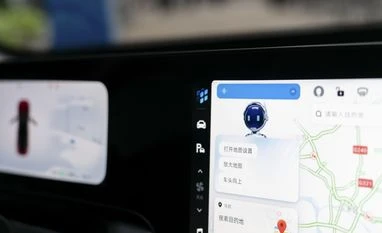Biden admin to prepare ban on Chinese car software to prevent hacking
Lael Brainard, director of the White House's National Economic Council, is set to speak Monday in Detroit about the Biden administration's efforts to strengthen the US auto industry
)
In May, the administration levied a 100 per cent tariff on Chinese electric vehicles, pointing out its government is subsidising its auto industry | Photo: Bloomberg
Listen to This Article
By David Welch and Mackenzie Hawkins
The US Commerce Department is planning to reveal proposed rules that would ban Chinese- and Russian-made hardware and software for connected vehicles as soon as Monday, said people familiar with the matter.
Commerce has been meeting with industry experts in recent months looking to address security concerns raised by a new generation of so-called smart cars. The move would include bans on use and testing of Chinese and Russian technology for automated driving systems and vehicle communications systems, the people said. While the bans mostly focus on software, the proposed rules will include some hardware, they said.
Many of today’s cars — both gas and electric — are equipped with devices connecting them to the internet or cloud services, making them potential targets for hacking. The pending restrictions stem from an investigation of cybersecurity risks from Chinese vehicle software that President Joe Biden launched in March.
The Biden Administration’s primary concern is preventing China or Russia from hacking vehicles or tracking cars by intercepting communication with software systems that their domestic companies have created. The rules would also have a protectionist element since most new cars are connected at least through infotainment systems, so Chinese carmakers could be barred from selling in the US if the vehicles use their connected technology.
Also Read
In May, the administration levied a 100 per cent tariff on Chinese electric vehicles, pointing out its government is subsidising its auto industry and increasingly exporting its excess capacity at a time when US companies are building more battery-powered cars.
The Commerce Department declined to comment.
Lael Brainard, director of the White House’s National Economic Council, is set to speak Monday in Detroit about the Biden administration’s efforts to “strengthen the US auto industry.”
China has emerged as a leader in electric vehicles and components for smart cars, in part because of widespread government subsidies and support. BYD Co. sold more fully electric vehicles than Tesla Inc. in the fourth quarter of last year, and global carmakers have become increasingly dependent on Chinese suppliers for technology needed for connected vehicles. For its part, China has said it respects data privacy and the security of its foreign customers and the principles of fair competition.
The new restrictions would be enforced by the Commerce Department to prevent Chinese companies from collecting data on US drivers, especially individuals, and sending it back to China. The rules would also effectively keep Chinese suppliers from establishing a bigger foothold in the US, giving the American auto industry time to build its own supply chain for connected vehicles.
The Commerce proposal includes different phase-in periods for the various affected software and components, people familiar with the proposal said.
Officials aim to enact a final rule in January 2025, the people said, following a 30-day comment period on the proposal.
Reuters first reported the outlines of the proposal earlier on Saturday.
In addition to driver assist and autonomous vehicle systems, as well as software that tracks vehicles by using mapping and satellite location, the rules would govern hardware for vehicle communication systems. That could include things like the so-called V2X systems, which cars use to communicate with road infrastructure, other equipped vehicles and the cloud.
More From This Section
Don't miss the most important news and views of the day. Get them on our Telegram channel
First Published: Sep 22 2024 | 6:53 AM IST